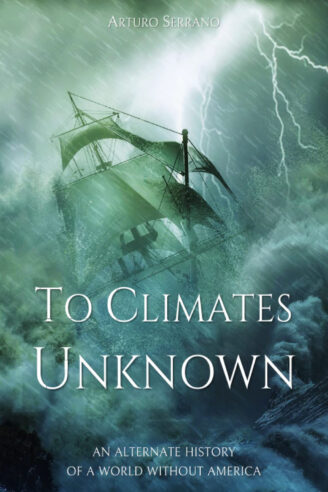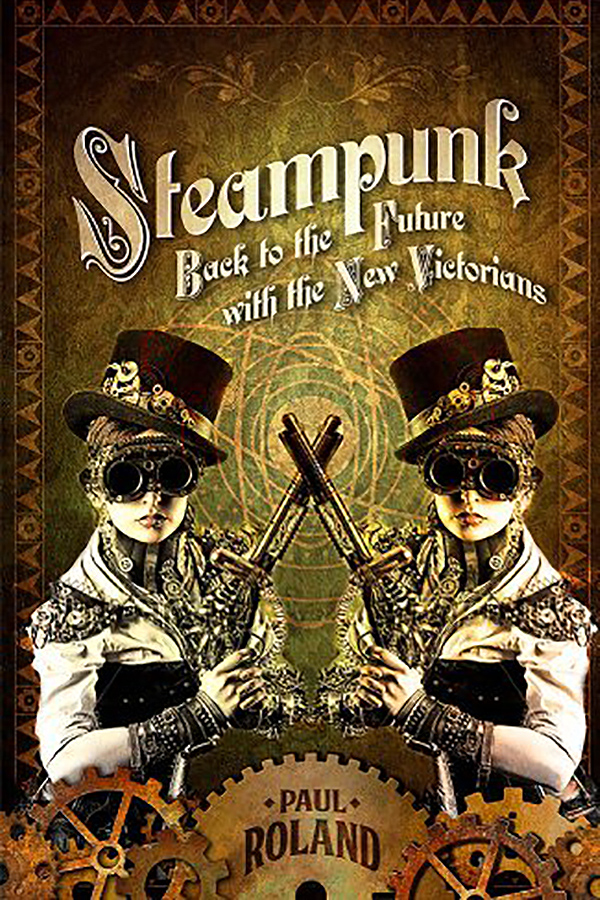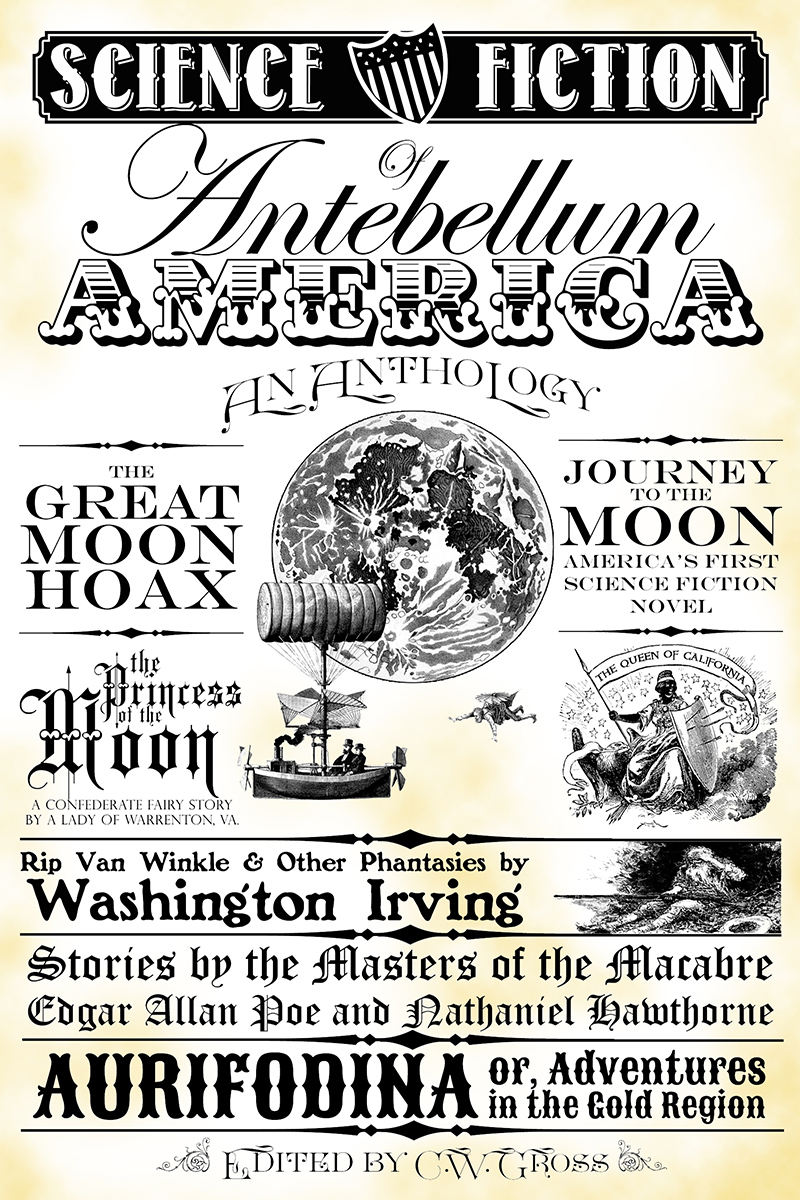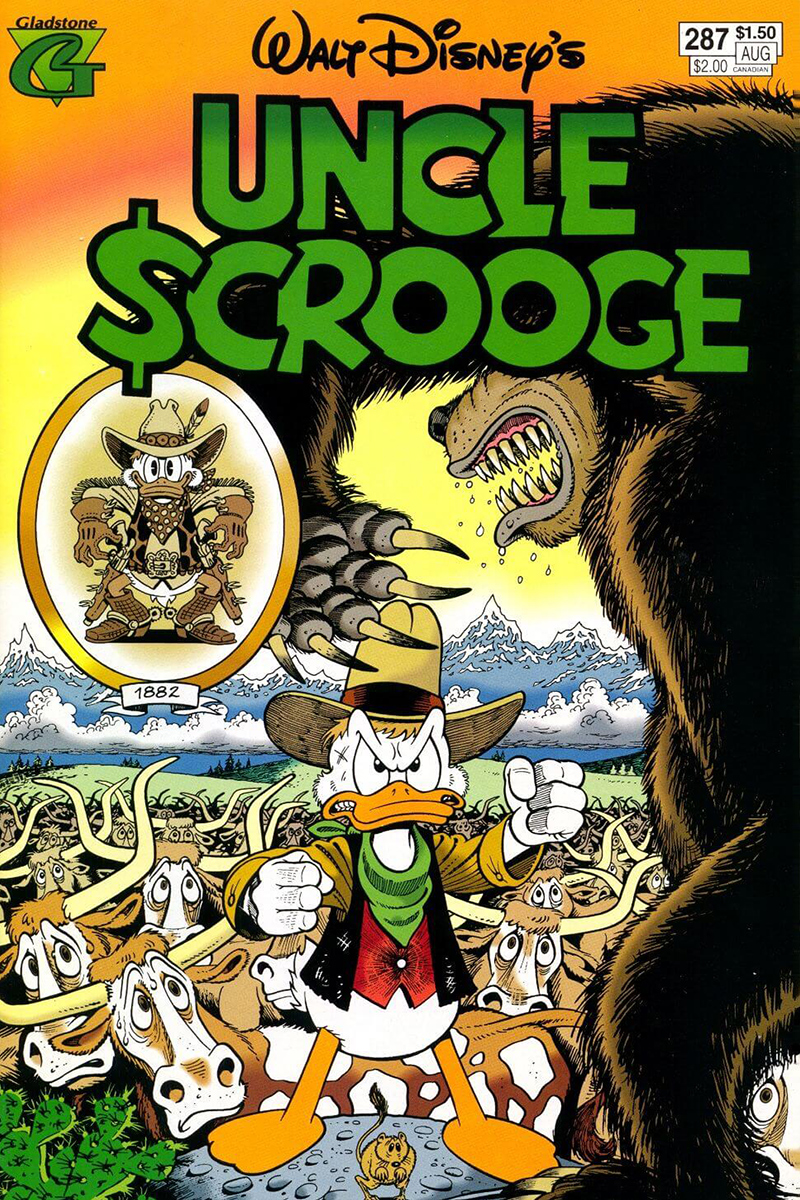For want of a ship, a nation was lost.
Such is the point of divergence of Arturo Serrano’s To Climates Unknown: the premature sinking of the Mayflower. Otto von Bismarck said that “God has a special providence for fools, drunkards and the United States of America.” In this world, that civilization, Anglo-America (which includes Canada, much of the Caribbean and Belize), simply never comes to pass.
It is a strange point of divergence, one that a pedant could poke ample holes in. I certainly could; it makes an assumption that usually irritates me, for I am from Virginia. I remember in fourth grade having the saying “Jamestown was the first permanent English settlement in the New World” drilled into my head. As such, an overemphasis on Plymouth irks me.
The nitpicker might discount this novel for that oversight. They would be making a grave mistake, for I can say without hyperbole that To Climates Unknown is the best alternate-history novel I have ever read.
Serrano takes a common alternate-history form and breathes into it a human core that few authors of the genre do. To Climates Unknown is a series of chapters, subdivided into sections, about the world that comes out of the loss of the Mayflower. Each has its own set of characters, and each chapter concerns a different time and place. Through these connected stories, a broader, intricately detailed world begins to take place.
Serrano writes in his afterword that the novel was in part inspired by Kim Stanley Robinson’s The Years of Rice and Salt; a veteran reader of the genre will notice the similarity. He also draws on Edward Rutherfurd’s epic historical novels, which he credits in the afterword. In terms of the humanization of traditional alternate history, I’m reminded of Martin Concagh’s Presidential, which breathes vivid life into the leader list format.
The world Serrano builds is daunting in its vision. From the early seventeenth century onward, the world is remade along unexpected yet believable lines. Technology is revolutionized, with submarines and tanks and steam engines being invented earlier than in our timeline. Most impressively, this rigor applies to every country the narrative visits, from Sweden to the Great Lakes to the Congo to China. For fans of epic alternate history, this book is a dream come true.
A lesser writer would have made the exploration of this world morose and stilted in a textbook style; what my colleague Colin Salt would call “trinketization“. Fortunately for the reader, Serrano is a better author. Each section is a very human story with elegantly crafted characters, all of whom feel three-dimensional. Their interactions, no matter their country of origin, feel plausible, and you will find yourself deeply invested in people you will only know briefly.
Even more compelling is that (as revealed in the afterword) many of the characters were based on historical figures.
It is in the afterword that you come to realize the nature of Serrano’s accomplishment. He lists in great detail all the books he read to research his novel. The rigor, research and time that went into realizing his vision is impressive. To Climates Unknown represents a great benefit of alternate history done well: broadmindedness. To speculate about history competently, you need to learn a lot of actual history without forgetting that, no matter how much you learn, there is always more. This should encourage the alternate historian to read an immense amount, to learn an immense amount, and to never stop.
I’m reminded of my favorite essay on Bret Deveraux’s blog, A Collection of Unmitigated Pedantry:
On the one hand, this provides a data set of sorts — a wide range of information about places, cultures and people. But more importantly than that, it is meant to teach students how to go about learning about a place or a people not their own, to inspire a degree of “epistemic humility” (that is the knowledge that you do not know everything) and also what I call an “empathy of diversity” — the appreciation that the human experience and the things humans do and value varies quite a bit place to place and person to person and that what seems strange to us seems normal to others.
This is a benefit of the genre I have discussed before; I believe that To Climates Unknown encapsulates what can be reaped from this approach.
Perhaps more profound than its broadmindedness is a quality that few works of alternate history possess on a deep level. To Climates Unknown is a novel that is fundamentally moral. It is an exploration of the deep brutalities of imperialism, and how this affects those outside the halls of power; as Liam Connell says (and as I like to keep quoting in my articles), it is alternate history about “peasants, not kings.” It doesn’t steer away from brutalities and horror, but it doesn’t fall into despair either. Like Ursula K. Le Guin or Kim Stanley Robinson or Yanis Varoufakis or H.G. Wells, Serrano dares to look at what humans are capable of, and dares to show us what a better world might look like. And equally unflinchingly shows us what may be needed to bring it about. (Without spoiling it too much, his solution reminded me of Robert A. Heinlein’s The Moon Is a Harsh Mistress.).
Gary Oswald of Sea Lion Press wrote that alternate history is about not taking the past for granted. Serrano tells us not to mistake the past for an unbreakable foreboding of a miserable future.
As I wrote in my review of Curtis Sittenfeld’s Rodham, anyone who combines the intimacy of Sittenfeld’s character work with Harry Turtledove’s breadth of historical knowledge would move mountains in our genre. My fellow alternate historians, I have found that mountain-mover, and his name is Arturo Serrano. To Climates Unknown is high literature melded with great alternate history. It is the greatest alternate-history novel I have read, and it is the nearest to the platonic ideal of alternate history I have ever seen. Serrano’s name deserves to be added to the list of Tom Anderson, Philip K. Dick, Kim Stanley Robinson, Robert Sobel and Harry Turtledove.






1 Comment
Add YoursThis is excellent, thoughtful, insightful commentary. Thanks for the tip!